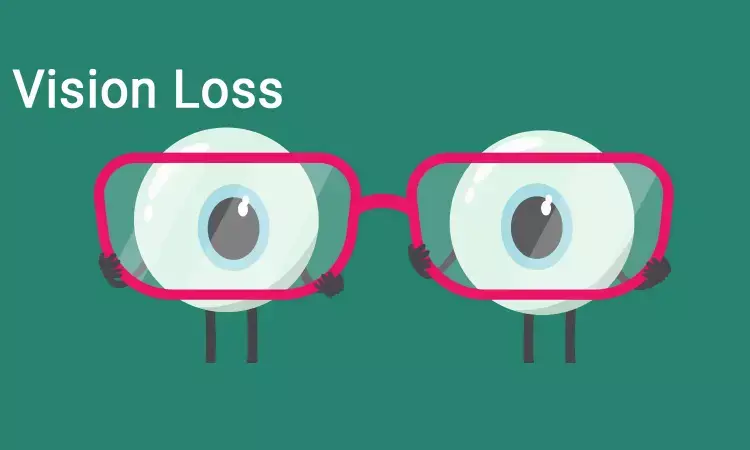- Home
- Medical news & Guidelines
- Anesthesiology
- Cardiology and CTVS
- Critical Care
- Dentistry
- Dermatology
- Diabetes and Endocrinology
- ENT
- Gastroenterology
- Medicine
- Nephrology
- Neurology
- Obstretics-Gynaecology
- Oncology
- Ophthalmology
- Orthopaedics
- Pediatrics-Neonatology
- Psychiatry
- Pulmonology
- Radiology
- Surgery
- Urology
- Laboratory Medicine
- Diet
- Nursing
- Paramedical
- Physiotherapy
- Health news
- Fact Check
- Bone Health Fact Check
- Brain Health Fact Check
- Cancer Related Fact Check
- Child Care Fact Check
- Dental and oral health fact check
- Diabetes and metabolic health fact check
- Diet and Nutrition Fact Check
- Eye and ENT Care Fact Check
- Fitness fact check
- Gut health fact check
- Heart health fact check
- Kidney health fact check
- Medical education fact check
- Men's health fact check
- Respiratory fact check
- Skin and hair care fact check
- Vaccine and Immunization fact check
- Women's health fact check
- AYUSH
- State News
- Andaman and Nicobar Islands
- Andhra Pradesh
- Arunachal Pradesh
- Assam
- Bihar
- Chandigarh
- Chattisgarh
- Dadra and Nagar Haveli
- Daman and Diu
- Delhi
- Goa
- Gujarat
- Haryana
- Himachal Pradesh
- Jammu & Kashmir
- Jharkhand
- Karnataka
- Kerala
- Ladakh
- Lakshadweep
- Madhya Pradesh
- Maharashtra
- Manipur
- Meghalaya
- Mizoram
- Nagaland
- Odisha
- Puducherry
- Punjab
- Rajasthan
- Sikkim
- Tamil Nadu
- Telangana
- Tripura
- Uttar Pradesh
- Uttrakhand
- West Bengal
- Medical Education
- Industry
Study reveals how vision loss influences perception of sound

London- Researchers, including one of Indian-origin, have revealed that people with severe vision loss can less accurately judge the distance of nearby sounds, potentially putting them more at risk of injury.
The research from Anglia Ruskin University's Vision and Eye Research Institute (VERI) in the UK tested participants with different levels of vision loss, presenting them with speech, music and noise stimuli, and different levels of reverberation (echoes).
"Vision loss means people rely more on their hearing for awareness and safety, communication and interaction, but it was not known how hearing is affected by the severity of partial vision loss," said study researcher Shahina Pardhan, Director of VERI.
For the findings, published in the journal Scientific Reports, participants were asked to judge the distance of the different sounds, as well as the size of the room.The study showed that people with severe visual loss judged closer sounds more inaccurately compared to those whose vision loss is less severe, who in turn, were less accurate when compared to people with normal sight.For more distant sounds, people with severe visual loss judged these to be twice as far away when compared to normally sighted individuals.
According to the researchers, participants with severe sight loss also judged the rooms to be three times larger than the control group of normally sighted individuals.
"The results demonstrate that full blindness is not necessary for judged auditory distance and room size to be affected by visual loss and that changes in auditory perception are systematic and related to the severity of a visual loss," Pardhan said.
"Our research found that more severely visually impaired people were less accurate in judging the distance of closer sounds, which may make it harder for them in real-life situations, for example, such as crossing busy streets," Pardhan noted.
Medical Dialogues Bureau consists of a team of passionate medical/scientific writers, led by doctors and healthcare researchers. Our team efforts to bring you updated and timely news about the important happenings of the medical and healthcare sector. Our editorial team can be reached at editorial@medicaldialogues.in.
Dr Kamal Kant Kohli-MBBS, DTCD- a chest specialist with more than 30 years of practice and a flair for writing clinical articles, Dr Kamal Kant Kohli joined Medical Dialogues as a Chief Editor of Medical News. Besides writing articles, as an editor, he proofreads and verifies all the medical content published on Medical Dialogues including those coming from journals, studies,medical conferences,guidelines etc. Email: drkohli@medicaldialogues.in. Contact no. 011-43720751


